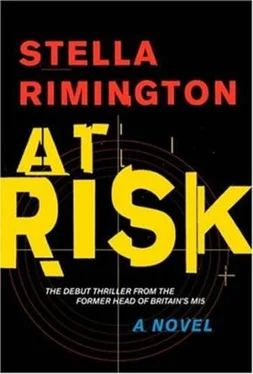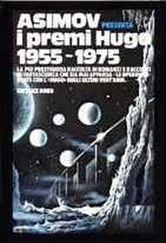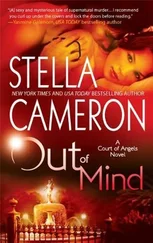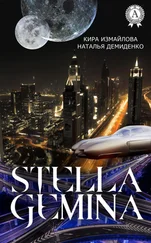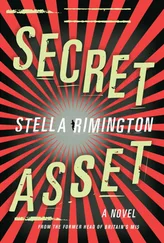Wetherby listened to Liz in silence as she summarised the events on Dersthorpe Strand. “I’m calling a COBRA meeting,” he said quietly when she had finished. “Can I give them any clue as to a probable target for our terrorists?”
“Guesswork at this stage,” replied Liz, “but one of the USAF bases would have to be most probable. Bruno Mackay’s over at Mildenhall now, liaising with the station chief.”
“OK, I’ll go with that. Keep me up to speed.”
“I will.”
There was a faint pause. “And Liz?”
“Yes?”
“Be careful, please.”
Smiling faintly, she replaced the phone. When things got rough, as they showed every promise of doing now, Wetherby seemed to be assailed by a curiously old-fashioned chivalry. He would never have told a male officer to be careful-of that she was certain. In anyone else she might have objected to this note of concern, but Wetherby was not anyone else.
She glanced over at Whitten. If a COBRA meeting was being convened, it was almost certainly only a question of time before the case was taken off his hands. The acronym referred to the Cabinet Office Briefing Room in Whitehall. The meeting would probably be chaired by a representative of the Home Office, with liaison officers from the Ministry of Defence, the police, and the SAS in attendance. Geoffrey Fane would be there too, she guessed, poised crane-like over the discussion. If the situation was considered acute enough, the case would then be nudged up to ministerial level.
Liz had sat up for most of the night in the village hall with Whitten, Goss and Mackay, monitoring the incoming information about Jean D’Aubigny, of which there had been quite a volume, and about Faraj Mansoor, of which there had been almost nothing, beyond the information from Pakistan liaison that someone of that name had attended one of the more radical madrassahs in the northern town of Mardan a couple of years earlier. It had been hard going-they were all heavy-eyed with exhaustion by the end-but it had had to be done. Around 5 a.m. Liz had returned to the Trafalgar and tried to sleep. But she’d drunk too much Norfolk Constabulary coffee and her mind was flying. She had lain there, the pub’s pink nylon sheets pulled to her chin, watching a grey and unwilling dawn slowly illuminate the gap between the curtains. In the end she had drifted off, only to be dragged back to consciousness almost immediately by a call from Judith Spratt’s deputy to alert her to an incoming message.
Blearily, Liz had switched on her laptop, and scanned and decoded the report. After several hours of questioning during the night, it seemed, the D’Aubigny parents had decided against giving any further information about their missing daughter. To begin with, under the impression that her involvement with Islamic fundamentalism had placed her in danger, they had been anxious to help. As the realisation had dawned on them that she was less a potential victim of terrorism than a wanted suspect, however, their answers had become more circumspect. Finally, claiming that their human rights were being infringed, and that they were being subjected to psychological torture in the form of sleep-deprivation-tell me about it, thought Liz wryly-they had refused to cooperate any further, and enlisted the services of Julian Ledward, a well-known radical lawyer.
Urgently repeat urgently need D’Aubigny’s connection w E Anglia, if any, Liz typed in return. Job? Holiday? Boyfriend? Schoolfriend? ( Was D’Aubigny @ boarding school or UK university? ) Tell parents they’re risking daughter’s life by not talking.
She had encrypted and sent the reply, and hoped for the best. After a shower and a silent breakfast with Mackay in the Trafalgar dining room, she had been back in the village hall by 7:30. Mackay, as planned, had driven off to Mildenhall USAF base, armed with a sheaf of printout portraits of Faraj Mansoor and Jean D’Aubigny.
In the village hall, which she couldn’t quite bring herself to call “the incident room,” she had discovered Don Whitten, alone. The brimming ashtray at his elbow suggested that he hadn’t gone home since she had taken her leave at 5 a.m. They had sat and stared together at a big A3 printout of Jean D’Aubigny. Taken four years earlier, it was an interior shot, and showed a surly-looking young woman in a black sweater standing in front of an out-of-focus Christmas tree. Short, unfashionably cut brown hair framed a pale oval face with intense, wide-set eyes.
“I’ve got one that age,” said Whitten.
“What’s she do?” asked Liz.
“Lives at home and gives us a shed-load of grief. Nothing like this, though. Jesus.”
Liz nodded. “It’d be good to get her alive.”
“You think we won’t?”
She met Jean D’Aubigny’s twenty-year-old gaze. “I don’t think she’ll come out with her hands up, put it like that. I think she’ll want to be a martyr.”
Whitten pursed his lips. The steel-grey of his moustache, Liz noticed, was yellowed with nicotine. He looked exhausted.
Now, three hours later, she watched as, with measured grimness, he stuck an arc of pins into a 1:10,000 Ordnance Survey map. Each pin, and there were twelve of them, marked a roadblock. Whitten had calculated that their targets couldn’t have driven more than a dozen miles from Dersthorpe since abandoning their old car and-presumably-commandeering a new one. He had set his traps accordingly.
“I’ve also requested helicopters and a Tactical Firearms Unit,” he told her. “We’re getting them, I’m happy to say-the TFU are going to be on standby within the hour-but we’re getting Deputy Chief Constable Jim Dunstan too. I’ve been bumped to second-in-command.”
“What’s he like?” asked Liz sympathetically.
“Good enough bloke, I suppose,” said Whitten. “Not over-keen on your lot, though, from what I’ve heard.”
“OK, thanks for the warning.” Earlier she had looked at Jean D’Aubigny’s portrait with a certain detached sympathy, sensing the maladjustment in that over-intense gaze. Now she just viewed their quarry as the enemy-two people who were prepared to murder a harmless creature like Elsie Hogan just because, for whatever reason, she had found herself in the wrong place at the wrong time.
They had to be stopped. Stopped before they destroyed more lives, and caused more desperate and needless grief.
Jean had been driving for twenty minutes when they saw the roadblock. They were travelling at a careful twenty-five miles an hour along a rutted single-lane track, enclosed by high hedges of bramble and elder. According to the map the lane would soon connect with another, which after various bifurcations would lead them southwards between the villages of Denton and Birdhoe. The route had been planned on the basis that they were still driving the Astra, and as the one on which they were least likely to encounter a police car. Given their changed circumstances, there had been an argument in favour of heading for the fastest road out of the area, and attempting to outrun any roadblock, but on balance, thought Jean, they had probably made the right decision by sticking to the original route. Farm roads were slow, but they were discreet.
Beside her, the young man whose car she was driving had subsided into a silent, sulking torpor. His immediate fear of their weapons had subsided, to be replaced by a dull fury at his helplessness and at the liberties taken with his precious Toyota.
Jean saw the blue light at the same moment that he did. They were passing a gap in the hedge, a gap through which the junction with the Birdhoe road, half a mile ahead, was momentarily visible. The blue light had flickered just once-a mistake, Jean guessed. Praise be to God, she thought, for the flatness of this countryside, and then the fear kicked in, hard and painful.
Читать дальше
